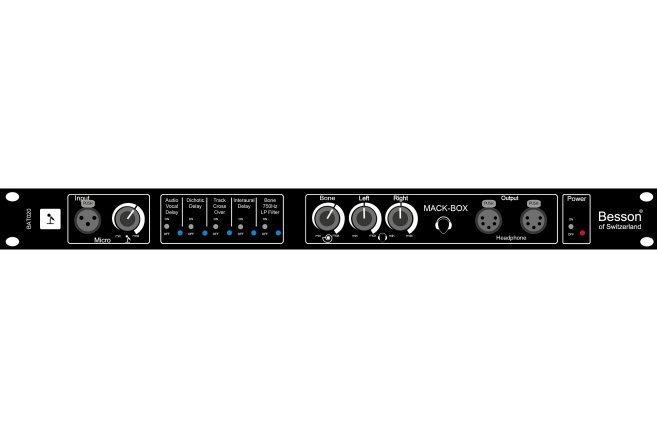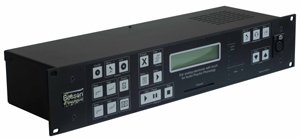Hearing & Auditory Processing

Auditory Processing Disorder (APD) – also referred to as Central Auditory Processing Disorder or Auditory Processing Difficulties, describes the inability to process the meaning of sound, a condition often present from early childhood impacting the ability to listen and attend to auditory information specifically in unfavourable acoustic settings e.g. classroom situation or environmental conditions where the individual has difficulties processing spoken language or verbal information in less than optimal acoustic settings.
An important distinction regarding APD is that hearing is rarely impaired, as the individuals is able to hear the sounds but cannot process them. This may also impact auditory attention, auditory sustained attention and short-term auditory memory skills.
Research has found that APD often coexists with developmental problems in children and which condition may amplify the symptoms of that disorder.
Developmental disorders such as Autism Spectrum, Attention Deficit/Hyperactivity Disorder, Dyslexia, Language problems, and other developmental conditions often have concurrent problems with auditory processing difficulties where the individual may experience ‘auditory overload’ by either not being able to listen well or having periods of over sensitivity.
Symptoms of Auditory Processing Deficits
- Difficulties with listening effectively
- Poor comprehension in noisy environments
- Easily distracted by background noise
- Poor speech comprehension and difficulties with discrimination of similar sounding words
- Often asking to have the information repeated
- Misunderstanding what has been said
- Poor verbal memory or poor short term auditory memory skills
- Difficulties with following some verbal directions or instructions
- Trouble sequencing sounds in words
- Difficulty perceiving some high frequency sounds: ‘t’, ‘f’ ‘s’, ‘k’, ‘p’, ‘th’, ‘sh’
- Confusion when faced with similar sounds: e.g. ‘da’ and ‘ba’
- Poor phonemic awareness skills impacting reading, spelling and comprehension skill development
- Potentially, overall learning is compromised
Auditory Processing difficulties may also lead to some emotional dysregulation such as frustration because of misunderstanding what is being said, or feelings of incompetence and disconnection from others, which may lead to some social isolation or sometimes some challenging behaviours.
What is the difference between hearing, listening and auditory processing abilities?
A distinction needs to be made between the passive act of hearing and the active intention of listening. It is easy to overlook how many sounds we do not listen to because our attention is directed elsewhere.
Good listeners are able to concentrate on a task for an extended period of time focusing on what is being said despite background noise. They can also store a significant amount of auditory information in their short-term auditory memory and process verbal information quickly. This is not a function of the ear but a reflection of the ear’s relationship with the brain, and the neural wiring between hearing and understanding.
Causes of Auditory Processing Disorder
As yet it is unclear as to how APD comes about but research has shown that often it is associated with a history of childhood ear infections, glue ear, allergies, speech developmental issues and developmental disorders. It is therefore important to evaluate auditory processing abilities specifically when there are developmental issues and learning problems.
Auditory processing difficulties may lead to phonological awareness problems
Phonemes are the most basic units of sound, and the English language contains 44 phonemes which are used in combinations to form words. Phonological awareness describes the ability to appreciate that language is composed of these phonemes sequenced in millions of different ways, and children acquire this recognition over time which leads to speech development and later reading and writing skills.
It is imperative that individuals experiencing developmental disorders such as Autism Spectrum, Attention Deficit/Hyperactivity Disorder, Dyslexia, Language problems, and other developmental conditions be screened for auditory processing abilities, which should also be conducted with individuals experiencing learning problems, as their auditory processing skill difficulties may be compromising their phonological awareness skills acquisition, and in turn reading and spelling abilities.
Auditory processing abilities are as fundamental as phonological awareness skills. Phonological awareness is an elemental part of primary school learning as it is the foundation to understand concepts of rhyming, word patterns, and distinguishing between similar sounding words (eg. ‘pear’ and ‘bear’) and different sound emphasis (eg. ‘accent’ and ‘ascent’), and other abilities which are the basis for the acquisition of literacy skills.
Assessment of Auditory Processing Disorder
We conduct comprehensive evaluations including auditory processing, phonological awareness, auditory attention and auditory sustained attention skills, as well as conducting Cognitive and Educational testing inclusive of reading, writing, spelling and math abilities. Our team also provides individualised educational plans to address learning difficulties in children, teenagers, and young adults.
These evaluations are carried out by our resident psychologist Martha Mack with over 20 years of experience in assessing developmental disorders in children, teenagers and young adults.







